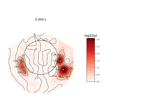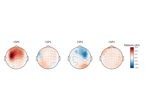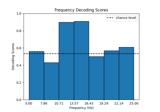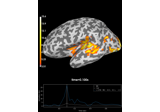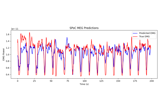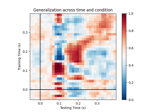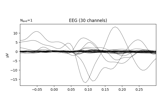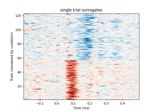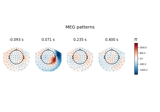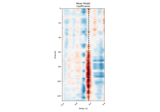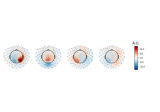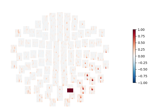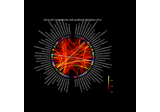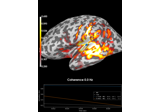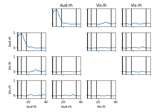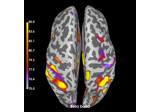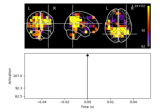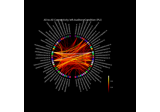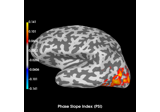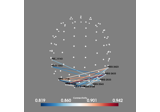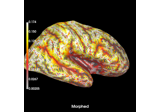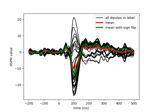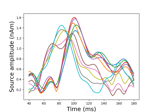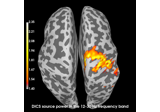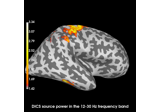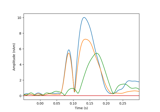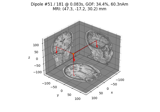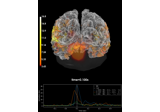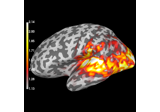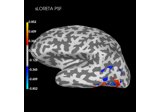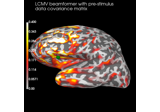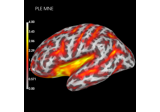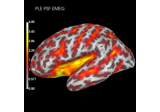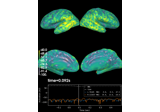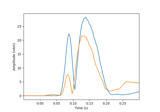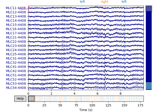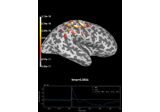mne.Info¶
- class mne.Info(*args, **kwargs)[source]¶
Measurement information.
This data structure behaves like a dictionary. It contains all metadata that is available for a recording. However, its keys are restricted to those provided by the FIF format specification, so new entries should not be manually added.
Warning
The only entries that should be manually changed by the user are
info['bads']andinfo['description']. All other entries should be considered read-only, though they can be modified by various MNE-Python functions or methods (which have safeguards to ensure all fields remain in sync).Warning
This class should not be instantiated directly. To create a measurement information structure, use
mne.create_info().See also
Notes
The following parameters have a nested structure.
chslist of dict:- calfloat
The calibration factor to bring the channels to physical units. Used in product with
rangeto scale the data read from disk.- ch_namestr
The channel name.
- coil_typeint
Coil type, e.g.
FIFFV_COIL_MEG.- coord_frameint
The coordinate frame used, e.g.
FIFFV_COORD_HEAD.- kindint
The kind of channel, e.g.
FIFFV_EEG_CH.- locarray, shape (12,)
Channel location. For MEG this is the position plus the normal given by a 3x3 rotation matrix. For EEG this is the position followed by reference position (with 6 unused). The values are specified in device coordinates for MEG and in head coordinates for EEG channels, respectively.
- lognoint
Logical channel number, conventions in the usage of this number vary.
- rangefloat
The hardware-oriented part of the calibration factor. This should be only applied to the continuous raw data. Used in product with
calto scale data read from disk.- scannoint
Scanning order number, starting from 1.
- unitint
The unit to use, e.g.
FIFF_UNIT_T_M.- unit_mulint
Unit multipliers, most commonly
FIFF_UNITM_NONE.
compslist of dict:- ctfkindint
CTF compensation grade.
- colcalsndarray
Column calibrations.
- matdict
A named matrix dictionary (with entries “data”, “col_names”, etc.) containing the compensation matrix.
- rowcalsndarray
Row calibrations.
- save_calibratedbool
Were the compensation data saved in calibrated form.
diglist of dict:- kindint
The kind of channel, e.g.
FIFFV_POINT_EEG,FIFFV_POINT_CARDINAL.- rarray, shape (3,)
3D position in m. and coord_frame.
- identint
Number specifying the identity of the point. e.g.
FIFFV_POINT_NASIONif kind isFIFFV_POINT_CARDINAL, or 42 if kind isFIFFV_POINT_EEG.- coord_frameint
The coordinate frame used, e.g.
FIFFV_COORD_HEAD.
eventslist of dict:- channelslist of int
Channel indices for the events.
- listndarray, shape (n_events * 3,)
Events in triplets as number of samples, before, after.
file_iddict:- versionint
FIF format version, i.e.
FIFFC_VERSION.- machidndarray, shape (2,)
Unique machine ID, usually derived from the MAC address.
- secsint
Time in seconds.
- usecsint
Time in microseconds.
hpi_measlist of dict:- creatorstr
Program that did the measurement.
- sfreqfloat
Sample rate.
- nchanint
Number of channels used.
- naveint
Number of averages used.
- ncoilint
Number of coils used.
- first_sampint
First sample used.
- last_sampint
Last sample used.
- hpi_coilslist of dict
Coils, containing:
- number: int
Coil number
- epochndarray
Buffer containing one epoch and channel.
- slopesndarray, shape (n_channels,)
HPI data.
- corr_coeffndarray, shape (n_channels,)
HPI curve fit correlations.
- coil_freqfloat
HPI coil excitation frequency
hpi_resultslist of dict:- dig_pointslist
Digitization points (see
digdefinition) for the HPI coils.- orderndarray, shape (ncoil,)
The determined digitization order.
- usedndarray, shape (nused,)
The indices of the used coils.
- momentsndarray, shape (ncoil, 3)
The coil moments.
- goodnessndarray, shape (ncoil,)
The goodness of fits.
- good_limitfloat
The goodness of fit limit.
- dist_limitfloat
The distance limit.
- acceptint
Whether or not the fit was accepted.
- coord_transinstance of Transformation
The resulting MEG<->head transformation.
hpi_subsystemdict:- ncoilint
The number of coils.
- event_channelstr
The event channel used to encode cHPI status (e.g., STI201).
- hpi_coilslist of ndarray
List of length
ncoil, each 4-element ndarray contains the event bits used on the event channel to indicate cHPI status (using the first element of these arrays is typically sufficient).
proc_historylist of dict:- block_iddict
See
idabove.- datendarray, shape (2,)
2-element tuple of seconds and microseconds.
- experimenterstr
Name of the person who ran the program.
- creatorstr
Program that did the processing.
- max_infodict
Maxwel filtering info, can contain:
- sss_infodict
SSS processing information.
- max_st
tSSS processing information.
- sss_ctcdict
Cross-talk processing information.
- sss_caldict
Fine-calibration information.
- smartshielddict
MaxShield information. This dictionary is (always?) empty, but its presence implies that MaxShield was used during acquisiton.
subject_infodict:- idint
Integer subject identifier.
- his_idstr
String subject identifier.
- last_namestr
Last name.
- first_namestr
First name.
- middle_namestr
Middle name.
- birthdaytuple of int
Birthday in (year, month, day) format.
- sexint
Subject sex (0=unknown, 1=male, 2=female).
- handint
Handedness (1=right, 2=left, 3=ambidextrous).
device_infodict:- typestr
Device type.
- modelstr
Device model.
- serialstr
Device serial.
- sitestr
Device site.
helium_infodict:- he_level_rawfloat
Helium level (%) before position correction.
- helium_levelfloat
Helium level (%) after position correction.
- orig_file_guidstr
Original file GUID.
- meas_datetuple of int
The helium level meas date.
- Attributes
- acq_pars
str|None MEG system acquition parameters. See
mne.AcqParserFIFfor details.- acq_stim
str|None MEG system stimulus parameters.
- bads
listofstr List of bad (noisy/broken) channels, by name. These channels will by default be ignored by many processing steps.
- ch_names
listofstr The names of the channels.
- chs
listofdict A list of channel information dictionaries, one per channel. See Notes for more information.
- comps
listofdict CTF software gradient compensation data. See Notes for more information.
- ctf_head_t
dict|None The transformation from 4D/CTF head coordinates to Neuromag head coordinates. This is only present in 4D/CTF data.
- custom_ref_applied
int Whether a custom (=other than average) reference has been applied to the EEG data. This flag is checked by some algorithms that require an average reference to be set.
- description
str|None String description of the recording.
- dev_ctf_t
dict|None The transformation from device coordinates to 4D/CTF head coordinates. This is only present in 4D/CTF data.
- dev_head_t
dict|None The device to head transformation.
- dig
listofdict|None The Polhemus digitization data in head coordinates. See Notes for more information.
- events
listofdict Event list, sometimes extracted from the stim channels by Neuromag systems. In general this should not be used and
mne.find_events()should be used for event processing. See Notes for more information.- experimenter
str|None Name of the person that ran the experiment.
- file_id
dict|None The FIF globally unique ID. See Notes for more information.
- highpass
float Highpass corner frequency in Hertz. Zero indicates a DC recording.
- hpi_meas
listofdict HPI measurements that were taken at the start of the recording (e.g. coil frequencies). See Notes for details.
- hpi_results
listofdict Head position indicator (HPI) digitization points and fit information (e.g., the resulting transform). See Notes for details.
- hpi_subsystem
dict|None Information about the HPI subsystem that was used (e.g., event channel used for cHPI measurements). See Notes for details.
- line_freq
float|None Frequency of the power line in Hertz.
- gantry_angle
float|None Tilt angle of the gantry in degrees.
- lowpass
float Lowpass corner frequency in Hertz. It is automatically set to half the sampling rate if there is otherwise no low-pass applied to the data.
- meas_date
datetime The time (UTC) of the recording.
Changed in version 0.20: This is stored as a
datetimeobject instead of a tuple of seconds/microseconds.- utc_offset
str “UTC offset of related meas_date (sHH:MM).
New in version 0.19.
- meas_id
dict|None The ID assigned to this measurement by the acquisition system or during file conversion. Follows the same format as
file_id.- nchan
int Number of channels.
- proc_history
listofdict The MaxFilter processing history. See Notes for details.
- proj_id
int|None ID number of the project the experiment belongs to.
- proj_name
str|None Name of the project the experiment belongs to.
- projs
listofProjection List of SSP operators that operate on the data. See
mne.Projectionfor details.- sfreq
float Sampling frequency in Hertz.
- subject_info
dict|None Information about the subject. See Notes for details.
- device_info
dict|None Information about the acquisition device. See Notes for details.
New in version 0.19.
- helium_info
dict|None Information about the device helium. See Notes for details.
New in version 0.19.
- acq_pars
Methods
__contains__(key, /)True if the dictionary has the specified key, else False.
x.__getitem__(y) <==> x[y]
__iter__(/)Implement iter(self).
__len__(/)Return len(self).
clear()copy()Copy the instance.
fromkeys(iterable[, value])Create a new dictionary with keys from iterable and values set to value.
get(key[, default])Return the value for key if key is in the dictionary, else default.
items()keys()(Re-)Normalize projection vectors after subselection.
pick_channels(ch_names[, ordered])Pick channels from this Info object.
pop(k[,d])If key is not found, d is returned if given, otherwise KeyError is raised
popitem(/)Remove and return a (key, value) pair as a 2-tuple.
set_montage(montage[, match_case, …])Set EEG sensor configuration and head digitization.
setdefault(key[, default])Insert key with a value of default if key is not in the dictionary.
update([E, ]**F)If E is present and has a .keys() method, then does: for k in E: D[k] = E[k] If E is present and lacks a .keys() method, then does: for k, v in E: D[k] = v In either case, this is followed by: for k in F: D[k] = F[k]
values()- __contains__(key, /)¶
True if the dictionary has the specified key, else False.
- __getitem__()¶
x.__getitem__(y) <==> x[y]
- __iter__(/)¶
Implement iter(self).
- __len__(/)¶
Return len(self).
- clear() None. Remove all items from D.¶
- copy()[source]¶
Copy the instance.
- Returns
- infoinstance of
Info The copied info.
- infoinstance of
Examples using
copy:
- fromkeys(iterable, value=None, /)¶
Create a new dictionary with keys from iterable and values set to value.
- get(key, default=None, /)¶
Return the value for key if key is in the dictionary, else default.
- items() a set-like object providing a view on D’s items¶
- keys() a set-like object providing a view on D’s keys¶
- normalize_proj()[source]¶
(Re-)Normalize projection vectors after subselection.
Applying projection after sub-selecting a set of channels that were originally used to compute the original projection vectors can be dangerous (e.g., if few channels remain, most power was in channels that are no longer picked, etc.). By default, mne will emit a warning when this is done.
This function will re-normalize projectors to use only the remaining channels, thus avoiding that warning. Only use this function if you’re confident that the projection vectors still adequately capture the original signal of interest.
- pick_channels(ch_names, ordered=False)[source]¶
Pick channels from this Info object.
- Parameters
- Returns
- infoinstance of Info.
The modified Info object.
Notes
Operates in-place.
New in version 0.20.0.
- pop(k[, d]) v, remove specified key and return the corresponding value.¶
If key is not found, d is returned if given, otherwise KeyError is raised
- popitem(/)¶
Remove and return a (key, value) pair as a 2-tuple.
Pairs are returned in LIFO (last-in, first-out) order. Raises KeyError if the dict is empty.
- set_montage(montage, match_case=True, match_alias=False, on_missing='raise', verbose=None)[source]¶
Set EEG sensor configuration and head digitization.
- Parameters
- montage
None|str|DigMontage A montage containing channel positions. If str or DigMontage is specified, the channel info will be updated with the channel positions. Default is None. For valid
strvalues see documentation ofmne.channels.make_standard_montage(). See also the documentation ofmne.channels.DigMontagefor more information.- match_casebool
If True (default), channel name matching will be case sensitive.
New in version 0.20.
- match_aliasbool |
dict Whether to use a lookup table to match unrecognized channel location names to their known aliases. If True, uses the mapping in
mne.io.constants.CHANNEL_LOC_ALIASES. If adictis passed, it will be used instead, and should map from non-standard channel names to names in the specifiedmontage. Default isFalse.New in version 0.23.
- on_missing
str Can be
'raise'(default) to raise an error,'warn'to emit a warning, or'ignore'to ignore when channels have missing coordinates.New in version 0.20.1.
- verbosebool,
str,int, orNone If not None, override default verbose level (see
mne.verbose()and Logging documentation for more). If used, it should be passed as a keyword-argument only. Defaults to self.verbose.
- montage
- Returns
Notes
Operates in place.
Examples using
set_montage:
- setdefault(key, default=None, /)¶
Insert key with a value of default if key is not in the dictionary.
Return the value for key if key is in the dictionary, else default.
- update([E, ]**F) None. Update D from dict/iterable E and F.¶
If E is present and has a .keys() method, then does: for k in E: D[k] = E[k] If E is present and lacks a .keys() method, then does: for k, v in E: D[k] = v In either case, this is followed by: for k in F: D[k] = F[k]
- values() an object providing a view on D’s values¶
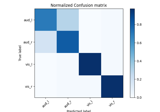
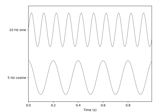
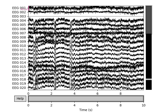
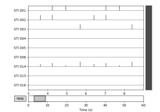
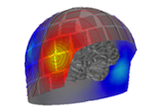
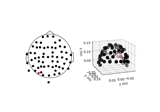
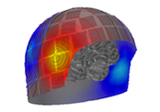
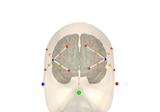
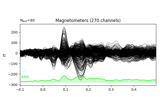
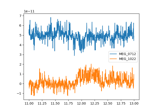
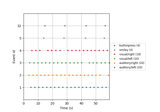
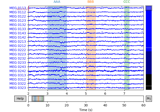
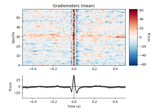
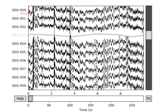
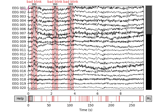
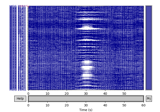
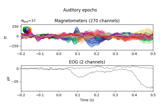
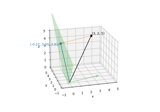
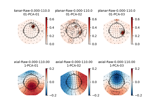
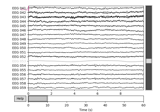
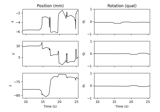
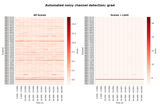
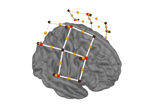
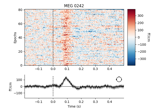
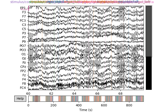
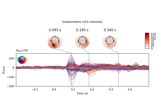
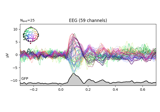
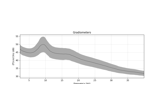
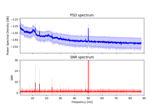
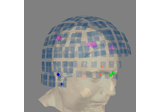
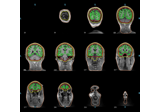
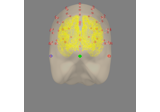

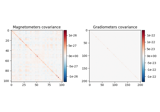
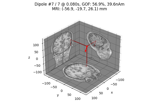

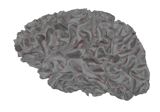
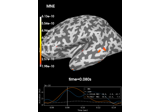
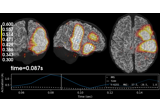
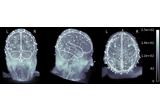
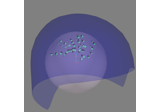
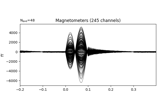
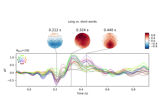
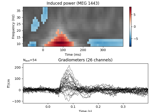
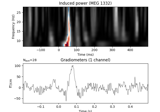
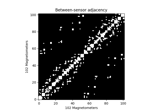
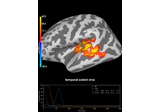
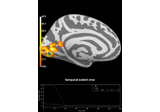
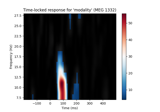
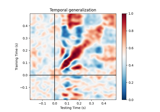
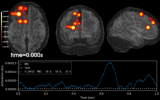
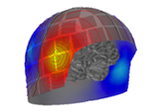
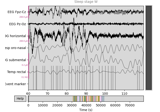
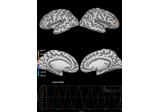
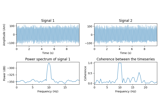
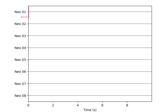
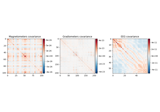
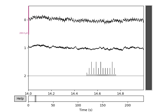
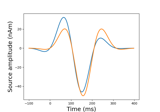
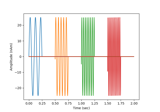
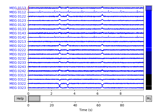
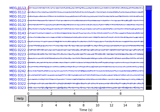
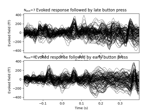
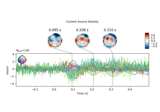
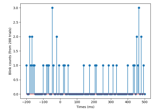
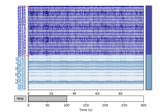
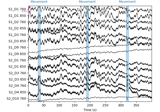
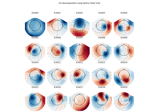
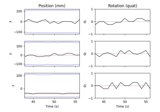
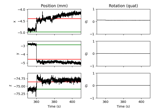
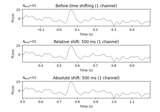
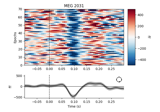
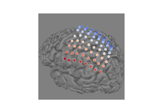
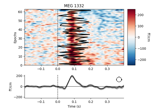
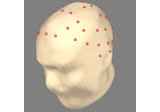
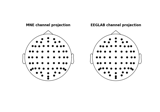
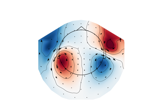
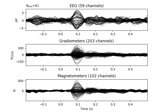
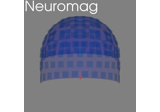
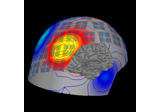
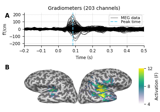
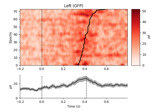
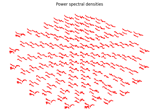
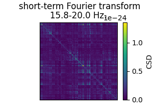
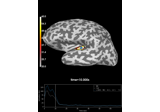
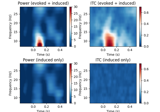
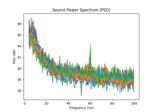
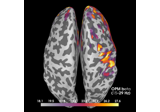
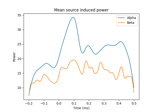
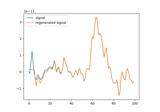
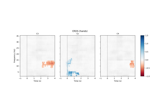
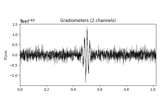
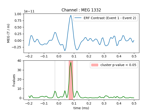
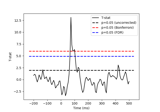
![Regression on continuous data (rER[P/F])](../_images/sphx_glr_linear_regression_raw_thumb.png)
